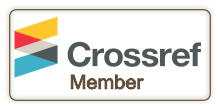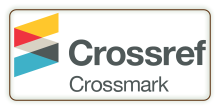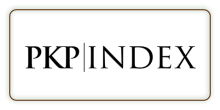SOUTH AFRICA' S ELECTORAL PROCESS: A CRITICAL ANALYSIS OF ITS POLITICAL HISTORY, DYNAMICS AND IMPLICATIONS
DOI:
https://doi.org/10.29121/ShodhSamajik.v1.i1.2024.6Keywords:
South Africa, Electoral Process, African National Congress (ANC), Democratic Alliance (DA), Economic Freedom Fighters (EFF), Historical Evolution, Dynamics, ImplicationsAbstract
This paper offers a critical analysis of South Africa's electoral process, examining its historical evolution, political dynamics, and implications for governance. Against the backdrop of the African National Congress (ANC)'s loss of its parliamentary majority for the first time since 1994, and the rise of opposition parties like the Democratic Alliance (DA), the Economic Freedom Fighters (EFF), and the new MK party, this paper walks through relevant literature, drawing upon conceptual frameworks, empirical studies, and theoretical perspectives to provide an informed opinion of South Africa's evolving electoral process. By synthesising past electoral trends, the 2024 election results, and emerging socio-political phenomena, it sheds light on the complexities inherent in South Africa's democracy. The paper argues that the changing political situation, marked by the decline in ANC support and the growing influence of opposition parties, pose significant challenges and opportunities for the country's future governance and democratic consolidation. It proposes specific recommendations to address these challenges and capitalise on the opportunities, aiming to inform both academic inquiry and practical policymaking.
References
Adetiba, T. C. (2017). Politics of Party Systems and Electoral Behaviour in South Africa: A Diagnosis. AUDA, 9(1), 59-80.
Agboga, V. (2023). How do Voters Respond to Party Switching in Africa? Democratization, 30(8), 1335-1356. https://doi.org/10.1080/13510347.2023.2232305 DOI: https://doi.org/10.1080/13510347.2023.2232305
Al Jazeera. (2024). South Africa Elections 2024 Explained in Maps and Charts.
Al Jazeera. (2024). South Africa Elections 2024: Key Issues by the Numbers.
Booysen, S. (2014). Causes and Impact of Party Alliances and Coalitions on the Party System and National Cohesion in South Africa. Journal of African Elections, 13(1), 66-92. https://doi.org/10.20940/JAE/2014/v13i1a4 DOI: https://doi.org/10.20940/JAE/2014/v13i1a4
Deegan-Krause, K. (2009). New Dimensions of Political Cleavage. Oxford Handbooks Online. https://doi.org/10.1093/oxfordhb/9780199270125.003.0028 DOI: https://doi.org/10.1093/oxfordhb/9780199270125.003.0028
Deitle, K. B. (2021). School Leadership Under Apartheid South Africa as Portrayed in the Apartheid Archive Project and Interpreted Through Freirean Education. Graduate Student Theses, Dissertations, & Professional Papers. (11696).
Gani, J. K., & Marshall, J. (2022). The Impact of Colonialism on Policy and Knowledge Production in International Relations. International Affairs, 98(1), 5–22. https://doi.org/10.1093/ia/iiab226 DOI: https://doi.org/10.1093/ia/iiab226
Hairsine, K. (2024). South Africa Faces Decisive 2024 Election. DW.
Imray, G. (2024). Why South Africa is Facing a Turning Point in May’s National Election and who the Major Players Are.
Jenkins, D. M. (1996). From Apartheid to Majority Rule: A Glimpse into South Africa's Journey towards Democracy. Arizona Journal of International and Comparative Law, 13, 463.
Kariuki, P., Khambule, I., Ofusori, L. O., & Mkhize, M. (2021). Youth Participation in Electoral Politics in South Africa: Trends, Patterns, and Patterns.
Kim, E. K., & Kim, H. S. (2021). The Winning Party Platform: Voter Perceptions of Party Positions and Voting in Urban Africa. Africa Spectrum, 56(2), 172–193. https://doi.org/10.1177/00020397211030934 DOI: https://doi.org/10.1177/00020397211030934
Leemann, L., & Mares, I. (2012). The Adoption of Proportional Representation. Social Science Research Network, 76(02). https://doi.org/10.2139/ssrn.2061393 DOI: https://doi.org/10.2139/ssrn.2061393
Levy, B., Hirsch, A., Naidoo, V., & Nxele, M. (2021, March 18). South Africa: When Strong Institutions and Massive Inequalities Collide.
Liebenberg, I. (2000). The Quest for Liberation in South Africa: Contending Visions and Civil Strife, Diaspora and Transition to an Emerging Democracy. Scientia Militaria, South African Journal of Military Studies, 30(2). DOI: https://doi.org/10.5787/30-2-172
Mbete, S. (2015). The Economic Freedom Fighters: South Africa’s Turn Towards Populism? https://doi.org/10.20940/JAE/2015/v14i1a3 DOI: https://doi.org/10.20940/JAE/2015/v14i1a3
Mbete, S. (2021). Electoral Reform in South Africa: Report Prepared for the Organisation Undoing Tax Abuse (OUTA) & My Vote Counts (MVC). Futurelect, University of Pretoria.
Mhlongo, L. (2020). A Critical Analysis of South Africa's System of Government: From a Disjunctive System to a Synergistic System of Government. Obiter, 41(2). https://doi.org/10.17159/obiter.v41i2.9149 DOI: https://doi.org/10.17159/obiter.v41i2.9149
Mngomezulu, B. (2019, August). Assessing the Suitability of the Proportional Representation Electoral System for Southern Africa. Southern African Peace and Security Studies, 6(2), 157-171. https://doi.org/10.31920/2056-5658/2019/V6n2a8 DOI: https://doi.org/10.31920/2056-5658/2019/V6n2a8
Mottiar, S. (2015). The Democratic Alliance and the Role of Opposition Parties in South Africa. Journal of African Elections, 14(1), 6. https://doi.org/10.20940/JAE/2015/v14i1a6 DOI: https://doi.org/10.20940/JAE/2015/v14i1a6
Netswera, M. M., & Khumalo, P. (2022). The Coalition-Building Process in South Africa: Reflection on the 2021 Local Government Elections. Published Online.
Paret, M., & Runciman, C. (2023). Voting Decisions and Racialized Fluidity in South Africa’s Metropolitan Municipalities. African Affairs, 122(487), 269–298. https://doi.org/10.1093/afraf/adad010 DOI: https://doi.org/10.1093/afraf/adad010
Rohanlall, L. (2014). Party Ideology in South Africa. Master's thesis, University of Witwatersrand, Johannesburg.
Schakel, A. H. (2013). Congruence Between Regional and National Elections. Comparative Political Studies, 46(5), 631-662. https://doi.org/10.1177/0010414011424112 DOI: https://doi.org/10.1177/0010414011424112
Sithole, N. (2023). Coalitions in South African Local Municipalities: Is the Constitution Enabling Democracy or not? University of London.
Smits, J. (2022). On the History and Future of the Theory of Social Cleavages. Paper Presented at the 21st Dutch-Belgian Political Science Conference (Politicologenetmaal), Nijmegen.
Vandome, C. (2024). The South African Election Campaign Season Marks a Shift to a Volatile New Politics. Chatham House.
Wikipedia. (2024). South Africa Elections, 2024.
Zuckerman, A. (2009). Political Cleavage: A Conceptual and Theoretical Analysis, 5(2). Published online by Cambridge University Press. https://doi.org/10.1017/S0007123400008140 DOI: https://doi.org/10.1017/S0007123400008140
























